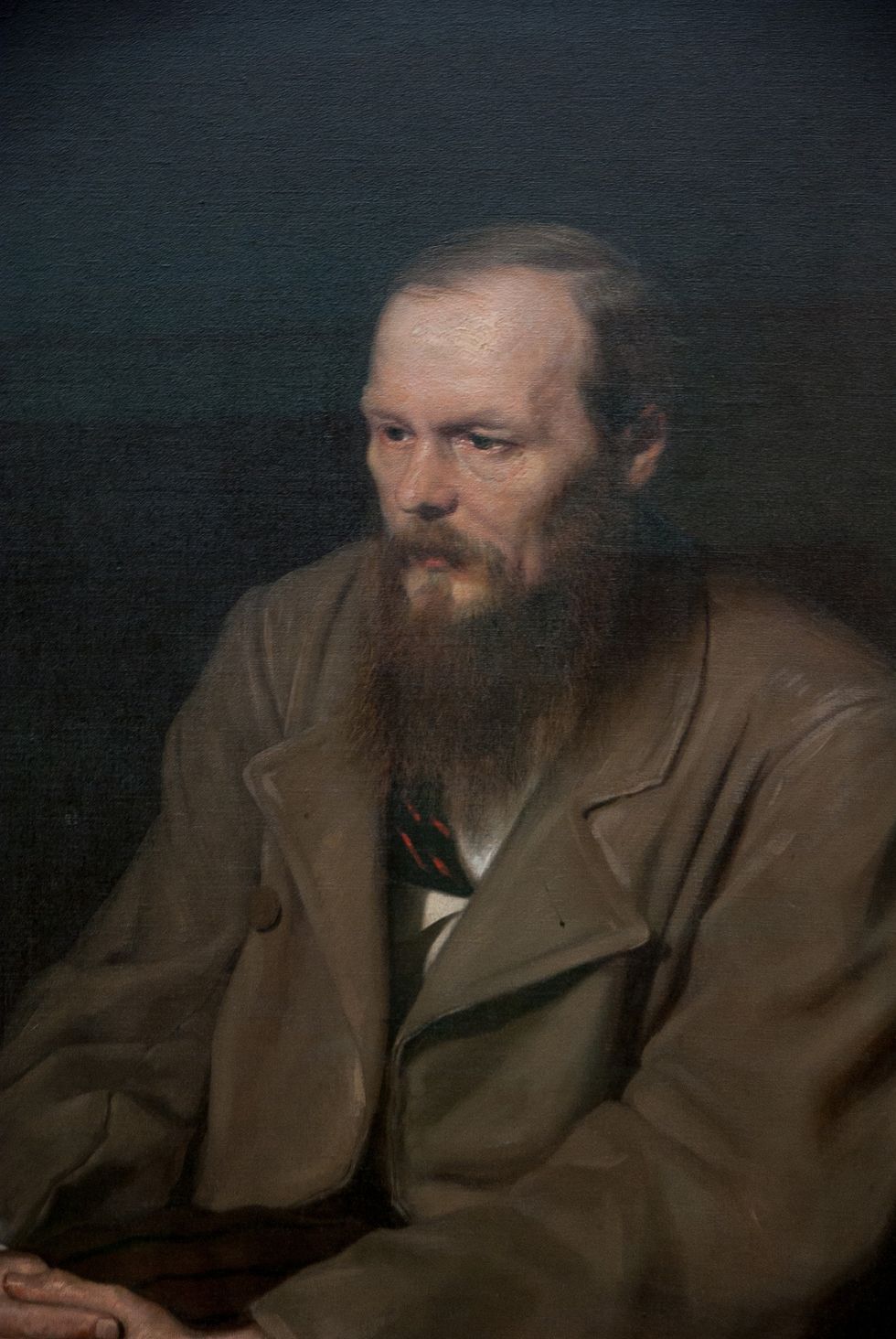When I began to review and read philosophy and the major literary classics, I finally saw myself as a normal Christian. As time progressed, though, I slowly became a Nihilist. It was only due to a few authors that I began to come closer and closer back to Christianity. Soon, I became a Christian again, and later became part of a sect known as the "Christian Existentialists." This involved deconstructing what I had previously believed before until I had nothing to base assertions on, and then constructing a worldview that is healthy and has coherency. I owe my transformation to three of my favorite authors: Dostoevsky, Nietzsche and Lovecraft. These men blew up my thinking and slowly rebuilt it. I am more or less a product of their writing, and to them I give these words.
Nietzsche:
Inventor of the phrase "God is Dead", Nietzsche is often said to be the greatest deconstructionist of all time. The proof lies in the fact that he criticized practically every worldview of his day. Nietzsche showed no mercy, and delivers his philosophy like a hammer. Nietzsche can give his readers, which he did for me, an awareness of the false assertions which make up our view of truth. Notions of right and wrong are often used to attain power by creating a sense of "I'm good", while others, perhaps the upper class (let's say I'm a socialist), or the ultimate evil. This can create a mythical notion for what my true problems are. Are my problems only of my own doing? Before I read Nietzsche, I believed that I was a good person simply for being a Christian. Nietzsche pummeled this worldview into a thousand pieces. This does not mean that Nietzsche, despite criticizing practically everything of his day (not to mention the past), was a Nihilist. Nietzsche believed in organizing our own being, and creating our own values, all the while not being subject to our new created values and those of others. For me personally, Nietzsche helped me organize myself, and deconstruct assertions which I held previously.
Lovecraft:
Howard Phillips Lovecraft's fiction conveys a philosophy of two types of fears: the fear of the unknown and the fear of insignificance. All of his literature, from his four novellas to over fifty short stories, can be summed up by saying that man's place in the universe is entirely insignificant, and that discovery of this will drive him insane. I read Lovecraft when I was on the verge of Nihilism, and because of him I tumbled to the bottom of the black void. Lovecraft taught me this: If we are to hold a materialistic worldview (that which encompasses no God and meaning), then our significance has no value. Lovecraft made me hit rock bottom, but he also scared me into searching desperately for a worldview other than nihilism. His writings are dark, scary, and deafening, but they are also very entertaining.
Dostoevsky:
I read Dostoevsky's "The Brothers Karamazov" during a point in my life when I was both depressed and spiteful about everything. Out of all the novels I've read, this one changed me the most. In fact, it changed my life. "The Brothers Karamazov” made me seek a biblical worldview. I learned that nihilism cannot give someone a good, well structured, sustained life. Not only did I learn that truth had to exist, but that everyone must believe in that truth. Within the pages of Dostoevsky's masterpiece is this quote: “Above all, don't lie to yourself. The man who lies to himself and listens to his own lie comes to a point that he cannot distinguish the truth within him, or around him, and so loses all respect for himself and for others. And having no respect he ceases to love.” I began after reading this book to seek a life which embodied truth. I stopped lying, and I began to realize what I found meaningful in my life. I grew healthy desires for things that were attainable, and my relationships began to flourish. In essence, Dostoevsky taught me that telling the truth is not only moral, but it sets you free.
These three authors have changed not only me, but generations of readers. Dostoevsky and Nietzsche are the most read individuals by existentialists, and have inspired several thinkers such as Sartre, Camus, Foucault and Jordan B. Peterson. Lovecraft would inspire a whole new literary genre known as the Lovecraftian genre. All of these writers are not only entertaining, but compelling. I recommend them for anyone who deals with deep issues of existence, faith, and identity.



















